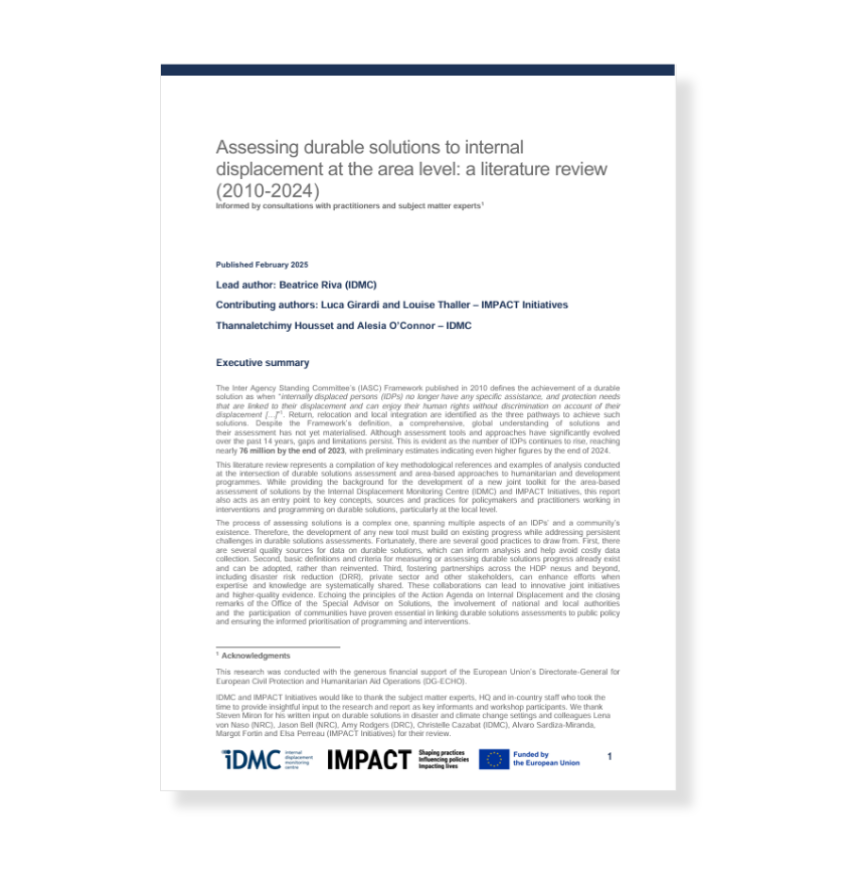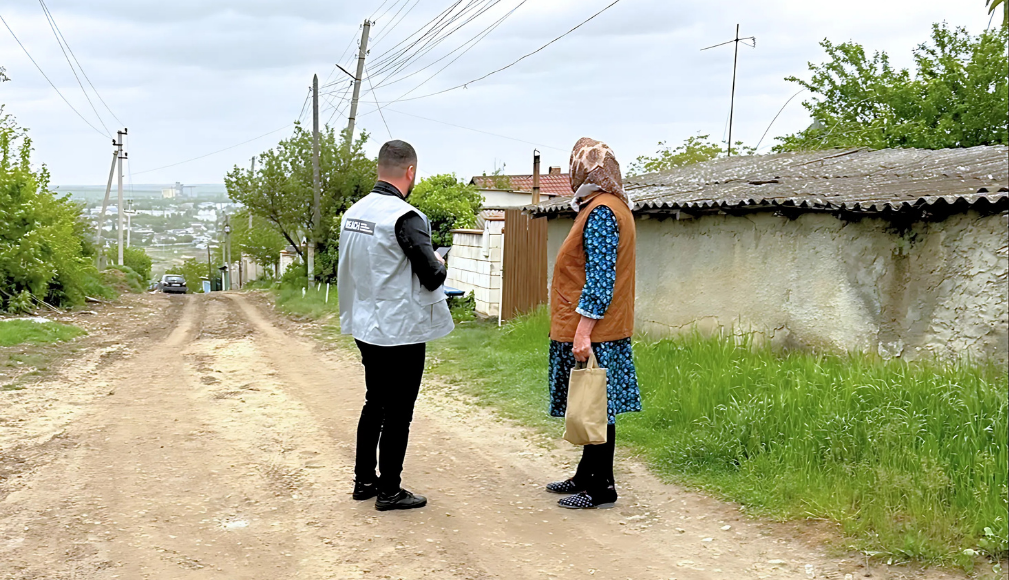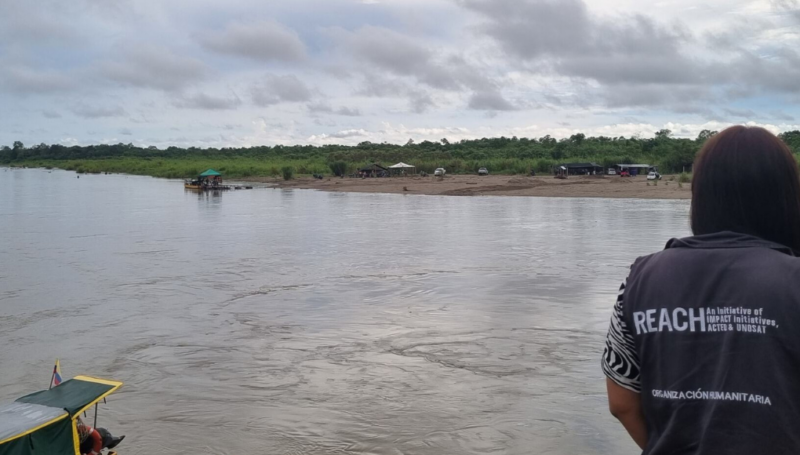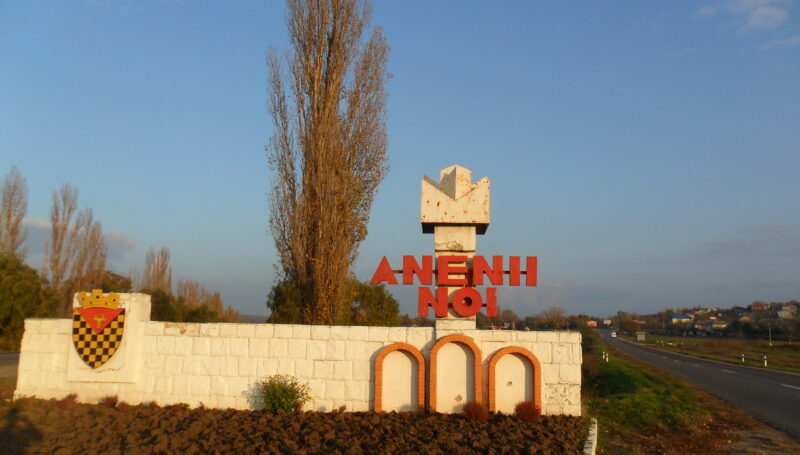 IMPACT Initiatives and the Internal Displacement Monitoring Centre (IDMC) are pleased to present their last collaboration: Assessing durable solutions to internal displacement at the area level: a literature review (2010-2024), a key output of a two-year ECHO-funded project which aims to strengthen the humanitarian sector’s ability to respond to internal displacement crises and accelerate the achievement of durable solutions through the provision of actionable data, evidence, and tools to support decision-making and response at the local level.
IMPACT Initiatives and the Internal Displacement Monitoring Centre (IDMC) are pleased to present their last collaboration: Assessing durable solutions to internal displacement at the area level: a literature review (2010-2024), a key output of a two-year ECHO-funded project which aims to strengthen the humanitarian sector’s ability to respond to internal displacement crises and accelerate the achievement of durable solutions through the provision of actionable data, evidence, and tools to support decision-making and response at the local level.
The review, building on the analysis of approximately 350 documents and consultations with around 70 subject-matter experts (SMEs) and in-country practitioners, highlights the advancements and persistent challenges in assessing durable solutions at different levels, while also identifying good practices and data gaps.
This review focuses on how Area-Based Assessments (ABAs) can help address these challenges, emphasizing their role in supporting local solutions to internal displacement. It also provides key recommendations to guide the development of the Localized Durable Solutions Assessment Toolkit, which is currently being created as part of the same project.
Key recommendations
- Design. Effective Area-Based Assessments require resource assessment, balancing methodological rigor with operational feasibility. Engaging primary audiences, such as local authorities and humanitarian-development-peace (HDP) actors, ensures findings inform existing and future programs, plans and policies.
- Data collection and analysis. Assessments must reflect complex decision-making in displacement situations, allowing for nuanced responses rather than binary choices. Intersecting vulnerabilities – such as age, gender, and ethnicity – must be highlighted through disaggregated data.
- Partnerships and collaboration. Given the complexity of durable solutions assessments, strategic partnerships across humanitarian, development, peace, and disaster risk reduction sectors are essential to improve data quality and impact. Multistakeholder collaboration can help scale findings and shape broader policy discussions.
- Participation. Ethical engagement with communities is critical. Assessments should respect participants’ time, avoid raising unrealistic expectations, and apply a conflict-sensitive approach to prevent tensions within and between communities, while gathering perspectives on solutions.









